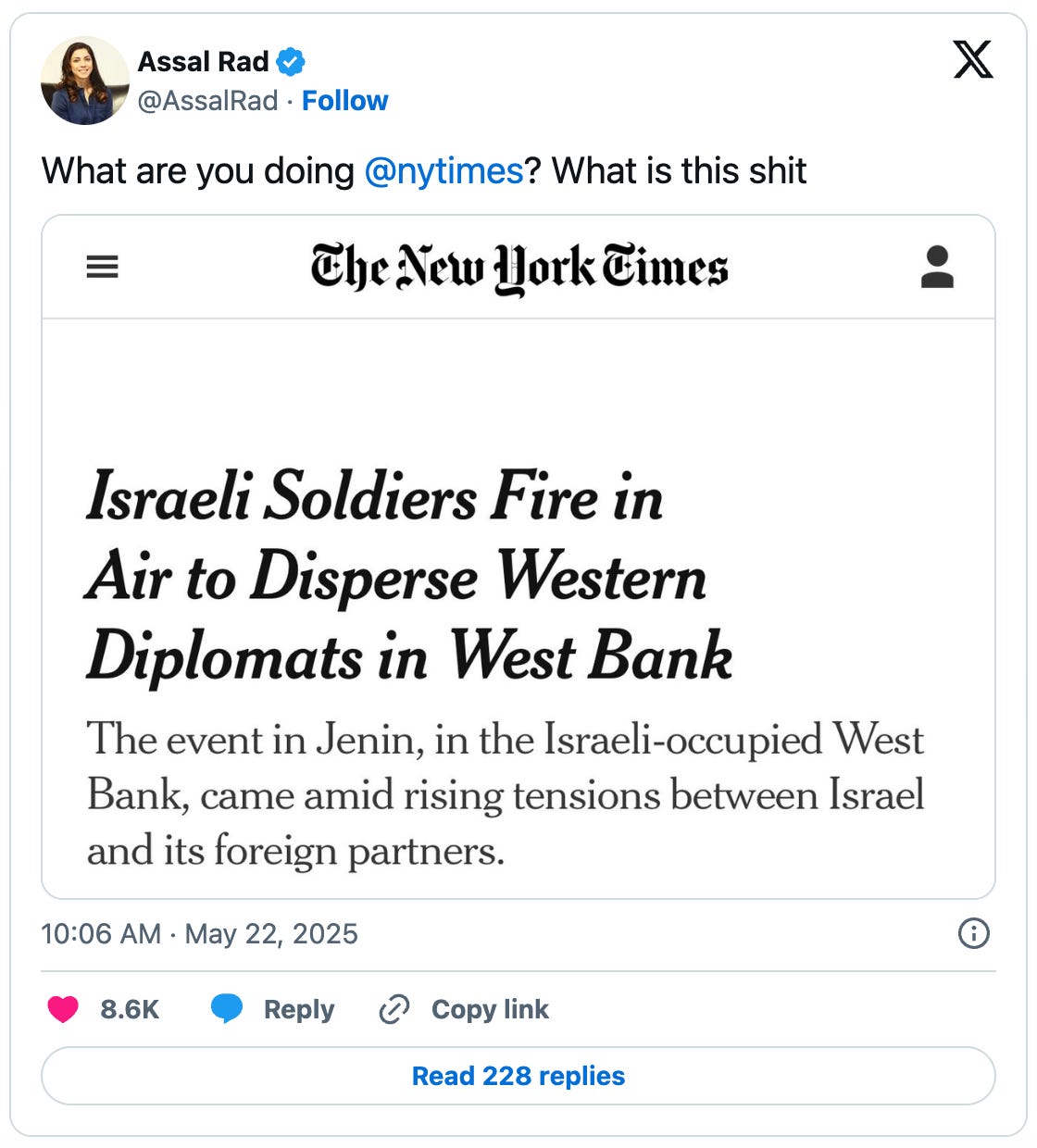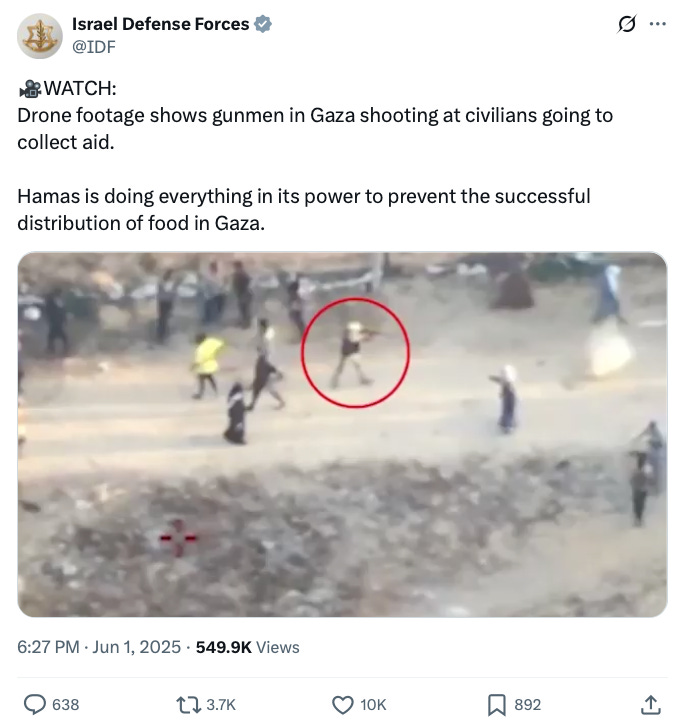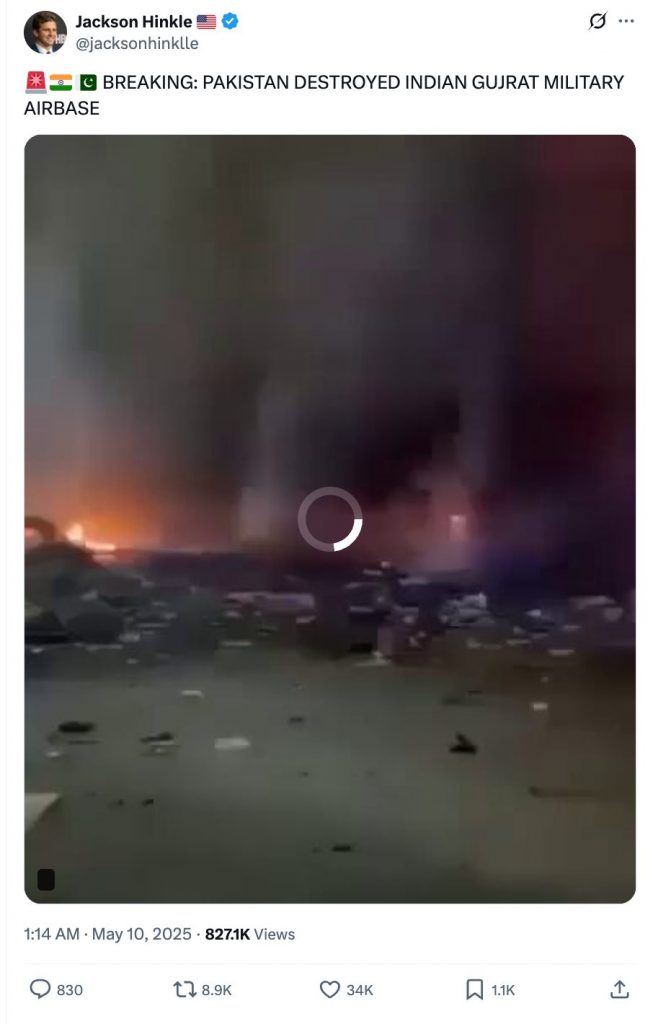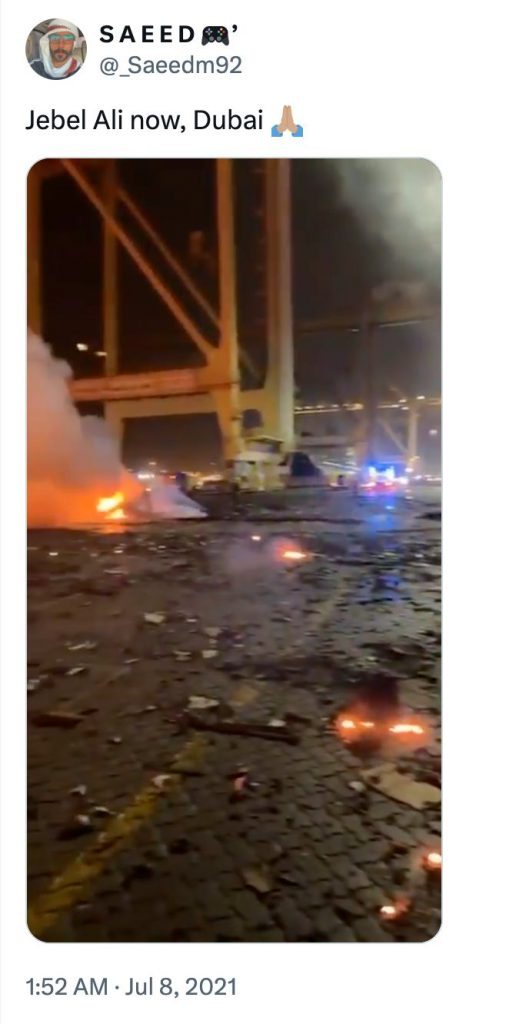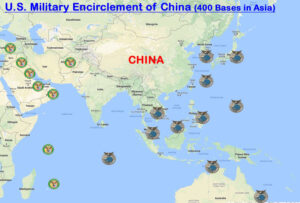US Senator Tom Cotton recently published a book titled Seven Things You Can’t Say About China. I decided to put myself through the aggravated torture of reading it, just to see what he had to say, and now mourn hours of life that I’ll never get back.
Simply put, the book’s existence is a crime against quality academic literature.
I had no expectations of strong, intellectual debate, because Cotton isn’t known for backing any of his claims with evidence (it only took me one page in to find that admittance: “I used simple common sense, not scientific knowledge or classified intelligence”), so I wasn’t disappointed by his complete lack of depth and historical accuracy.
More than anything, I was impressed that such an absurd, conspiratorial text could reach a publisher’s desk and be checked off on. It’s really not a book at all—it’s a manifesto of paranoia. The kind you expect to find written in messy, hand-scrawled letters and hidden beneath the desk of a serial killer whose crimes you are trying to piece together.
Well, Cotton’s crimes are many. This book is just one more venture in his career, full of asking, I wonder how much I can get away with?
While Tom Cotton has always been one of war’s #1 fans, his favorite of all is one still yet to happen—the one he’s trying to justify in his book. His “brave truth-telling” is nothing less than imperialist propaganda feverishly trying to manufacture an enemy and send us headlong into that war.
He starts by trying to convince us that China is the manifestation of all evil and wrongdoing, the harbinger of doom, and the pioneer of global villainy:
“China is waging economic world war.”
“Communist China is the focus of evil in the modern world.”
“China is coming for our children.”
As bewildering as these statements are, what stood out to me the most is that Tom Cotton has clearly never studied China in any real capacity. I can’t forgive him for his ignorance, because it’s undoubtedly followed closely by deep, soul-crushing racism, but I can teach him a few things he never learned in military boot camp.
Tom Cotton, here are seven things you need to learn about China.
1. China’s rise has nothing to do with the US.
Tom Cotton situates everything China has done over the past century as a calculated maneuver to outwit and conquer the United States. It’s a classic case of main-characterism, in which a subject assumes everyone’s actions revolve entirely around them.
The truth is, China’s rise has nothing to do with the US. Really, it’s none of our business. China developed because the modern era called for it. China sought economic prosperity because it had 1.4 billion citizens to provide for. China became powerful because that’s a side effect of having one of the largest economies in the world.
China’s success is its own achievement. The fact that the US considers another country’s growing prosperity to be a direct threat against it says far more about the US. Instead of buying into the existential threat narratives, we need to ask why they exist.
Why is China’s economic prosperity so terrifying to the Washington elite? Well, Tom Cotton says it loud and clear:
“Most of us take American global dominance for granted, without thinking much about it; since at least World War I, that’s just the way it’s been. World trade is conducted in dollars. English is the unofficial global language of business and politics. (…) For more than a century, Americans have reaped enormous economic and security benefits from this state of affairs.”
How dare another country become prosperous despite decades of foreign occupation, intervention, and coercion meant to reaffirm global inequality and protect US dominance?
2. China is 5,000 years old.
In 1949, when the PRC was established under the Communist Party, the US proclaimed that it had “lost China.”
Let’s get this straight: a 175-year-old country was proclaiming to have “lost” a 5,000-year-old civilization state. Isn’t that absurd? China was never ours to have or to lose, or to do anything with at all.
At the time, the US government even considered preemptively striking China to ensure it never obtained nuclear weapons. Those considerations never disappeared entirely.
We really have to consider the differences between the two states with vastly opposing backgrounds, because you can’t understand China through a Western lens. The US is a relatively young nation born out of settler colonization and genocide of the native people. Our wealth was amassed through resource extraction, exploitation, and slavery. What precedent does that set? In comparison, China has undergone thousands of years of dynastic empires rising and falling. It has a strong cultural continuity and shared historical experience that informs how it conducts itself in the global theater. Its wealth was amassed internally, not through imperialist behavior or the exploitation of another. It’s an ancient civilization with deep roots, and a unique vision of the world informed by a long philosophical tradition and an anti-capitalist, anti-imperialist framework.
Additionally, China was one of the world’s largest economies for over 2,000 years, accounting for around 25-30% of global GDP. It wasn’t until the colonial period of the 1800s that colonial violence and occupation by Japan and the British Empire drove China into poverty. In the 1970s, it was one of the world’s poorest nations. The fact that China was able to return to its former prosperity despite decades of foreign intervention is nothing less than a miracle.
Tom Cotton has no understanding of these complexities. He sees China through the narrow, ultra-patriotic, super-imperialist, America-is-the-center-of-the-
3. You have to travel to China to understand China.
Which Cotton can’t do because he’s sanctioned from visiting. I really can’t blame China at all for that. I wouldn’t want Tom Cotton in my country either.
Regardless, I know this to be true: you have to see China for yourself to develop any real understanding of it. The fact that Tom Cotton has never been to China and will never go only proves that he has absolutely no authority, and never will, over writing a book about China’s actions and intentions.
It should be a prerequisite for any individual with any degree of political power to spend time in the country they claim to know so much about. They should be required to visit cities and towns, to learn the country’s version of its history, and to talk with local people about their unique perspectives.
Tom Cotton has not, will not, and therefore, his opinion should not be accepted or respected.
4. China does NOT want his kids.
In Chapter 6, Tom Cotton says, “China is coming for our kids.” It’s a bold statement, and he doesn’t give us much follow-up to reinforce such extremism. You’d expect something a bit more villainous, like a government-backed kidnapping ring or 5G mind control. But alas, what Cotton refers to is the growing prevalence of the social media app TikTok.
TikTok, he says, is a Chinese plot to take over the minds of the American youth.
You may recall Cotton’s viral moment when he repeatedly asked Singaporean TikTok CEO Shou Zi Chew if he was Chinese. The conversation went like this:
“Of what nation are you a citizen?”
“Singapore, sir.”
“Are you a citizen of any other nation?”
“No senator.”
“Have you ever applied for Chinese citizenship?”
“Senator, I served my nation in Singapore. No, I did not.”
“Do you have a Singaporean passport?
“Yes, and I served my military for two and a half years in Singapore.”
“Do you have any other passports from any other nations?”
“No senator.”
“Have you ever been a member of the Chinese Communist Party?”
“Senator, I’m Singaporean. No.”
“Have you ever been associated or affiliated with the Chinese Communist Party?”
“No, Senator. Again, I’m Singaporean!”
It goes without saying that the TikTok ban was dead in the water until pro-Palestinian content began proliferating. According to Congressman Mike Gallagher, “The bill was still dead until October 7th. And people started to see a bunch of antisemitic content on the platform, and our bill had legs again.”
In truth, the TikTok ban was never about China, but about shielding young minds from learning about Israel’s atrocities against the Palestinian people and the ongoing complicity of the United States. The ban now walks hand in hand with the new education reforms that seek to dispose of “anti-patriotic” fields of study like critical race theory and threatens open discussion about the genocide in Gaza by automatically deeming it antisemitic. Yes, we are watching radical censorship in action.
Anyway, Tom Cotton, China is not coming for your kids or anyone else’s, and making that claim without evidence is lazy and hysterical. This type of rhetoric serves one purpose only: to fuel fear and drive war.
5. China didn’t ruin our economy—we did.
It’s a real irony that those with all the power and money never take responsibility for their failings, but blame everyone else. And a lot of the time, people don’t see it. For instance, the elites who have crippled the US economy continue to point their fingers at those with no power at all—the impoverished, the starving, the homeless, the immigrants—and scream, it’s their fault! They did it! And the general populace turns on them with all the blame and rage of their wearisome existence. But who are the ones making all the decisions? Hoarding all the wealth? Throwing out tax breaks to billionaire friends and cutting the few life-saving programs that help regular folks get off the ground?
It’s the elites. The politicians. The CEOs.
We can’t blame China for developing. That’s its responsibility to its people. They didn’t steal our jobs. The thievery happened at home, on US soil, right under our noses. The corporate elite decided to take advantage of global inequality and save a few extra bucks by exporting industries abroad, where they could take advantage of cheap labor and exploit the resources of poorer nations.
Tom Cotton spends quite a lot of time talking about China’s “economic world war.” First of all, using war language to describe economic competition sets a dangerous precedent. Competition is natural within our economic systems, and shouting “war! “ when the US isn’t constantly on top is militant imperialist behavior (Sidenote: we must rid ourselves of the notion that there are limited resources and limited wealth. There’s plenty for everyone—the problem is the majority of wealth is hoarded by 1% of the global population.)
And secondly, I can’t help but wonder at the flips and tricks the human mind must do to accuse another nation of such an action, when the US has forever used sanctions, tariffs, and economic coercion as weapons to hurt and topple other nations, to corner them into loans and structural adjustments, and to strangulate, pressure, and punish. It makes Cotton’s particularly brief section on “economic imperialism” sound even more ridiculous.
6. China is more logical than Cotton will ever be.
My favorite section of Tom Cotton’s book began with the title, “Green is the new red.” I know it’s meant to be scary, but it reads more like one of those comedy-horrors that make you cringe, but you just can’t look away. I was particularly impressed with the impossible flexibility it takes to convince people a country is evil because it’s invested so much in… renewable energy!
Terrifying!
The mental gymnastics of this section might just be Cotton’s greatest feat ever.
One thing is for certain. There’s no logic to be found here. But there’s also no logic to be found in much of the US policy on climate change. If I had to put a symbol to it, I’d choose an ostrich sticking its head in the ground—if you don’t look, it’s not there!
Tom Cotton laments that as a result of heavy investment in solar panels, “China has devastated yet another American industry.” Those poor corporations. Those poor CEOs. How will they fare without their megayachts while the world burns?
It is an unfortunate side effect of capitalism that our system prioritizes wealth over protecting the planet. It’s a fortunate side effect of China’s socialist characteristics that they don’t. As Brazilian activist Chico Mendes said, “Environmentalism without class struggle is just gardening.”
7. China doesn’t want to go to war.
We can’t define China by what-ifs. What if China wants to conquer the Pacific? What if China invades Poland? What if China hacks into my coffee pot and deciphers my favorite brew? What if what if what if? It’s nonsensical. We can only define China by what it’s said and what it’s done.
If there’s one thing Tom Cotton needs to learn, it’s that China has no desire for war. Literally none. China has not been involved in any overseas conflict for fifty years. Compare that to the 251 foreign military interventions the US has conducted since just 1991. Really, just think about that. Don’t you think that if China had hegemonic ambitions, it would build a foreign military base in every country… or multiple? Or maybe over 900+ like the US? But no, China has just one in Djibouti. Tom Cotton thinks that the Djibouti base is suspicious and signals China’s malign ambitions. In reality, many nations have a military presence there to prevent piracy and smuggling in one of the world’s most crucial shipping lanes, the US included. Clearly, Tom Cotton lives in a different reality of his own paranoid design.
Additionally, Chinese officials have repeated—over and over and over—that they have no desire for war. I think we can take them at their word, considering their lack of war historically, and their foundational policy of “peaceful coexistence.” In Cotton’s entire book, he never once refers to China’s foreign policy principles that guide every decision made. Chinese officials have never talked about a world in which China “dominates” other countries. They have only ever talked about visions of a world built on mutual respect, sovereignty, non-aggression, non-interference, cooperation, and peaceful coexistence.
Tom Cotton needs to do some more reading on Chinese political theory, but it seems like he spends most of his learning hours thinking about war: “As a senator, I regularly review war games between China and the United States—exercises where military experts play out what would happen in a war between the two nations. I’ve never seen happy results.”
You don’t need a war game to tell you that the results of war would be unhappy. Anyone could tell you that. I’m sure if Tom Cotton thought hard enough, he could even come up with that prediction all on his own.
And war between the US and China wouldn’t just be unhappy, it would be devastating. Which is why our Congress members should be doing everything they can to prevent it, not ramping up the possibility by writing tedious, hysterical conspiracies about the evilness of other nations and the inevitability of conflict.
Tom Cotton has a lot to learn about China, a lot more to learn about being a good politician, and the absolute most to learn about being a good person. But he can start with learning about China and switching his political tools to fostering dialogue, cooperation, and understanding, rather than the war-driving dribble he regularly spews.
Unfortunately, the book was published. So if you see it at your local bookstore, do us all a favor and move it to the fantasy section, where it belongs. Or, if you’re feeling extra whimsical, you can add some Tom Cotton war criminal bookmarks to surprise the next person who picks it up. Meanwhile, we’ll be putting publisher HarperCollins on notice that it needs a much better fact-checking department.
The post Seven Things Tom Cotton Needs to Learn About China first appeared on Dissident Voice.This post was originally published on Dissident Voice.







